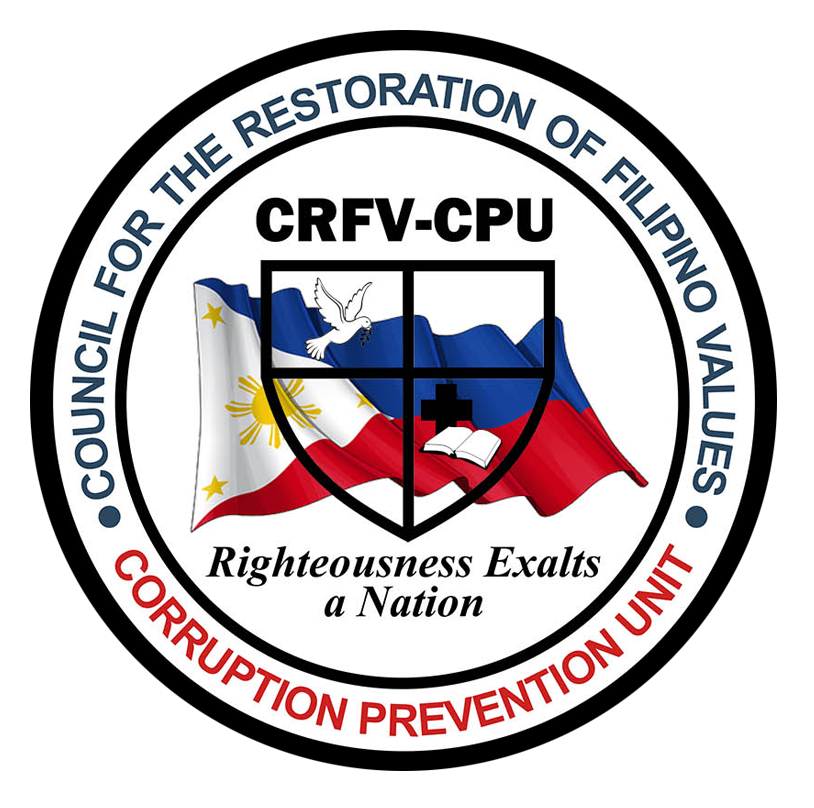|
by: Keren May Busaing When the going gets tough, do we have what it takes to remain committed and dedicated to the good things that we previously decided to take on? Commitment and dedication are qualities that are rare nowadays.
In the complexity of our day-to-day lives, it is easy to overlook the need for commitment and dedication. Most of the time, the demanding nature of our everyday activities results in decisions that overlook our dedication to the bigger picture. While this is called flexibility to the unexpected, how far are we from our original aspirations? Have we deviated from the essence of what we are supposed to commit to? For example, our resolve to become a better version of ourselves while we are in the moment is intense, and our dedication seems focused. Immediately, particular plans of action towards accomplishing it are lined up in our minds, for others, in their planners. Then, we take action according to our plans. It’s easy and smooth at first, then time passes, and so does our consciousness to fulfill it. Commitment and dedication are characteristics that we need to choose to do in our daily lives. While the specifics in our action plans may change, there are other ways to accomplish our goal of becoming better versions of ourselves. Commitment and dedication do not mean we should religiously stick to our action plan. There is no exact formula, and the constant is the goodness and purity of our intentions. Our ways and timelines may change, but we will eventually get there as we commit and act in righteousness toward it every day. Most importantly, as an everyday choice, commitment and dedication admonishes us to reach or accomplish our aspirations in righteousness. There is no shortcut to success; trying to do so is the opposite of commitment and dedication. It is impatience and contrary to the essence of our good intentions. As King David says in his Psalm, “Commit your way to the Lord; trust in him, and he will act.” Commitment and dedication are a partnership with God. By understanding that His plans for us are perfect - to prosper us and not to harm us, to give us hope and a future, committing must not be difficult for us. Let us then choose to commit to God’s ways that He shall delight in us and establish our steps towards our aspirations. Amongst the many ways to accomplish our success, let our commitment be specific to accomplishing things with God - not by our might nor by our own strength but by God’s Spirit, who is continuously at work in us. Altogether, let our daily consciousness be at peace, knowing that when the going gets tough and that in the midst of the many plans in our minds, it is the purpose of the Lord that will stand. Let our dedication be first established in Him, and our success, beyond what we can imagine, shall follow. Let this be our conscious choice every day, commit to God and His ways.
0 Comments
by: JESUS V. SISON, PTRP, CRFV Deputy National Director January is drawing to a close, but the message and promises for 2024 still stand. The high hopes and coruscating assurance of a blessed year abide. There is a solid confidence to see the fulfillment of every augured word proclaimed for us by The True and Almighty God. As the soul prospers, so will we flourish in all things. Thus, it is a year of supernatural abundance and exceptional prosperity in our lives. We are destined for extraordinary protection, progress, and provision. It will be an action-packed year, for we are destined only to experience the goodness and faithfulness of The Everlasting God. Dovetailed with God by the Spirit, we have access to every good and perfect gift from above. Spirituality is the way of the Spirit that spiritual people live.
Spiritual people live spirituality. There are a lot of notions that spiritual people are limited to those who serve as leaders of religious sects or denominations. Others consider only those who are so committed to a religious group. Devotees, if we may refer to them. But anybody and everyone has the right to become spiritual men and women. As for among us, being Public employees, we are spiritual people too. As we are called "public servants" who have a heart to inspire and affect the community, we are characterized by genuine concern and selflessness to serve others. Beholden to our commitment to public welfare, spirituality is as essential as exemplifying other values. We must practice it in public service as we exercise it in our private lives as an occupation. The root word of spirituality is spirit; spirit was derived from the Latin spīritus, whose original meaning was "breath, breathing" and hence "spirit, soul, courage, vigor. Thus, spirituality entails attaching life and "meaning" to the work being done[W1] in the workplace. It inspires us to connect to the Being higher than us- Our Almighty God. Moreover, spirituality can help us connect with our inner motivation and higher purpose. It will aid us in finding meaning in our work. It will revitalize a greater sense of calmness, peacefulness, a healthy mind, and well-being. A sense of well-being among the employees can be influential in developing motivation and improving public service quality. Spirituality in the workplace could also improve communication and build better relationships with co-workers, resulting in increased job satisfaction, productivity, and profitability. The goal of spirituality in the workplace is to create an environment that is accurately connected to God, establishing a culture of positivity and productivity. A spiritually-based workplace can give employees a conscious awareness of family or community, support, and belonging. This leads to improved job gratification, personal fulfillment, and organizational commitment. Agencies and employers also are positioned to benefit from generating spirituality in the workplace or spiritually-filled environment. We acknowledge spirituality as a significant feature of an organizational culture. Offices with spiritually healthy workplaces tend to have lower employee discontent, decreased turnover rates, and minimized absenteeism. Negativity is shut down, and problems are addressed accordingly. Further, employees who feel cared for and supported spiritually are more likely to be life-carriers, creative, and innovative. Above all, spirituality will inspire every employee to embrace a new heart and spirit in their work. There will be a new mindset refocused on bringing glory to God and satisfaction among our clientele. With these, we are positioned to receive the good promises of God that are all yes and amen for 2024 and beyond by: Ame-phil O. Saquiban President Ferdinand “Bongbong” Marcos Jr. said in his last State of the Nation Address, “Our journey to progress requires not only unity and social cohesion amongst our people. It is also imperative that our nation remains intact and inviolable, our sovereignty preserved. We will protect our sovereign rights and preserve our territorial integrity, in defense of rules-based international order.”
Indeed, “protecting our sovereign rights and preserving our territorial integrity” is one of the pressing issues in the Philippines. We need to protect our country from outside invasion. However, we should not be blinded of the fact that our country’s sovereignty and territorial integrity can also be weakened, not just by foreign oppressors but internal oppressors. Undoubtedly, there can be oppressors within our turf that aggravates or intensify the challenging state of life of our citizens. These are the people who take advantage of their positions to gratify their selfish ambitions and greed, thereby shortchanging our nation’s fullest potential. Every year, we appropriate budget amounting to trillions of pesos which are not even completely satisfied from our own savings and collections of taxes. We borrow money from international sources to sustain our government operational needs. To this date, we are not self-sufficient. On top of this, there is no guarantee that our big-ticket projects with the budget of billions of pesos are funded fully or accurately because of the ruthless practice of kickbacks and unwarranted commissions. Candidly, there are more unscrupulous insiders than outsiders. Borrowing from an article of Asia Society on Building a Nation of Integrity, it highlighted that “To achieve a truly corrupt-free Philippines, each and every Filipino, must pledge to live a life of integrity”. Consequently, we can address serious problems such as poverty, increasing foreign and domestic debts, budget deficits, low investment, and the likes. It is beyond cavil that integrity is an inviolable core value if we are to win this nation to its glorious destiny, not just a developing country. The Civil Service Commission identified it right that integrity is one of the values that civil servants should possess. It is in pursuant to the provision of our Constitution in Article 2, Section 27 that says, “The State shall maintain honesty and integrity in the public service and take positive and effective measures against graft and corruption”. In the same way, private citizens should observe the same. Nation building is the business of all. It is a public-private partnership endeavor. As we contemplate on how we can significantly contribute in nation-building this year, let us commit or recommit to live a life of integrity. Our words and actions in and outside of the workplace have the power to influence others to uphold the same. By: JESUS V. SISON, PTRP CRFV, Deputy National Director “The best way to spread Christmas cheer is singing loud for all to hear.” – Will Ferrell
This season is a celebration of a time of glad tidings. We hear Christmas carols and greetings everywhere we go. We convey a message of hope, change, and love, and we are reminded to make the message loud so that everyone will take note. To make a resounding message and to have it accepted, it takes maturity and sincerity to deliver it. Thus, we need to be conscious of the power of our words, especially among us - mature leaders. The tongue has prodigious power. Like values, words also matter. We can intuitively know as we sweepingly look at history. From the scriptures and even referential books of the past, much of it has been shaped by words, for treaties in the name of peace, for good or ill. For instance, World War II began on September 1, 1939, and spilled in the Pacific on December 8. While the words of Adolf Hitler motivated the slaughter of millions of innocents to execute bloodshed and invasions, the words of Winston Churchill inspired and stirred a nation to resist their adversaries against all odds. Words can affect a nation and can also impact individual people. This shows a message can be so loud because of our spoken words. It also shows the importance of leaders mastering their speech and gaining mastery over their tongue. This is a sign of maturity of one’s leadership. Maturity in leadership harnesses the power of a tamed tongue. Such is the reason why God purposely designed the tongue to have power. Saint James is sharing that every time we open our lips, we expose who we are and what the contents of our hearts are. He’s saying that a person who skillfully knows how to bridle the tongue and rein it for good is a mature individual. A leader in his/ her capacity. A mature leader. Taming the tongue is not shutting up. It’s the wisdom and skill to know when to speak, when not, what to say, and to whom we will talk. Again, Saint James mentioned interesting analogies of what a tongue is. He said it was “Poisoned”. It tends to lean towards evil. He described it as “full of deadly poison.” it is a “restless evil.” Pronounces “world of unrighteousness.” It stains and contaminates the whole body, and it is set on fire by hell. These metaphors take us back to the dawn of creation in the Garden of Eden. It was in the garden where the devil injected its deadly poison into humanity. How? Through cunning words and ungodly conversations. Man can subdue every creature and has, except the human tongue. This is what sets humans apart from animals. We have language. We speak, but it was touched by sin. This is the moral lesson that we should remember. Words are so powerful that they can either build or destroy. It can give life or death. This is why we must be careful and discerning if we engage in ungodly conversations because we poison ourselves and destroy other people and relationships. Cunning and deceitful words will result in miseries and loss of our future and destiny. A mature leader harnesses the power of a tamed tongue. We must remind ourselves that our tongues were created to express thankfulness, worship, and glory to God. They are meant to build up, be constructive, develop, motivate, and encourage. We should be producing life instead of death. We should be speaking about redemption and renewal instead of corruption and lies. We should be declaring times of refreshing and seasons of restoration instead of condemnation and hopelessness. This brings us to the conclusion of the matter. A tongue problem is not categorically a tongue problem per se but is a heart problem. Jesus Christ said that out of the abundance of the heart, the mouth speaks. No person can tame the tongue because it reflects a corrupted heart because of “Selfish Interest Nature” or S.I.N. A speech problem, a problem taming or controlling ourselves, is not simply a personality flaw or a product of our environment or culture. It’s an issue of a dead, depraved, and sinful heart. But there is hope. God promised that He would give us a new heart. Jesus Christ came for this to take place. He was born on Christmas eve and sent glad tidings that there is hope and joy to all humanity. And through His death and resurrection, He destroyed the works of evil and the horror of sin. As we confess our sins, He is faithful and forgives us. As we confess His Lordship over our lives, He changes our hearts. He healed, cured, and restored a poisoned tongue through His finished work. No man can tame the tongue. Only Jesus can tame the tongue by setting us free from the bondage of a corrupt heart. King David prayed and declared: Who may worship in your sanctuary, Lord? Who may enter your presence on your holy hill? Those who lead blameless lives and do what is right, speaking the truth from sincere hearts. Those who refuse to gossip or harm their neighbors or speak evil of their friends. Those who despise flagrant sinners, and honor the faithful followers of the Lord, and keep their promises even when it hurts. Those who lend money without charging interest, and who cannot be bribed to lie about the innocent. Such people will stand firm forever by: Atty. Carolina Lim-Gamban Selflessness is a character that each public official and employee must possess, for without it, the essence of public service is lost. No other than the Philippine Constitution mandates that public officers and employees must, at all times, serve the people with utmost responsibility, integrity, loyalty, and efficiency. For a civil servant to do this, he or she must possess a high standard of ethics, upholding the public interest over and above personal interest. The demand for this high standard will only be met if one observes selflessness.
Taking the extra mile to ensure the resources are used efficiently, effectively, honestly, and economically to avoid wastage in public funds is a form of selflessness. Although funds that will be used for procurement are not personally ours, being a good steward would allow us to spend every centavo wisely, for these funds came from the collective effort of the Filipino people, and it is prudent to put the money in its appropriate use. Those in the bids and awards committee have the privilege to protect our money from going to waste by scrutinizing the purchases to ensure that although the price is low, good product quality is still assured. Possessing and performing with a high degree of excellence, professionalism, and skill in our work is another form of selflessness. We capacitate ourselves, not just for the sake of it, but to improve the quality of the system and our services rendered to the people. Performing our work with justness and sincerity by bringing the best service to the people, especially the poor and underprivileged, is another form of selflessness. This is seen by not allowing our position to be abused by anyone or even dispensing or extending undue favors to our family, relatives, and friends, as we are sincere in fulfilling our oath as a lingkod-bayan. Extending our efforts to streamline and simplify the process so the public can easily avail and understand the procedure is another form of selflessness. Some civil servants even extend work beyond the hours required without additional compensation to deliver the service and address the needs of the public. This too, is another form of selflessness. The examples may go on and on, and you may add more, especially if you are in the public service, by asking yourself, “What have I done so far to show selflessness to others?” You can answer this by simply looking back to the provisions of Republic Act No. 6713, also known as the Code of Conduct of Ethical Standards for Public Officials and Employees, and do your part by fulfilling the required norms of conduct enumerated in Section 4. Of course, being a civil servant is not easy; however, selflessness creates a space to love others, thereby enabling us to serve with utmost responsibility, integrity, loyalty, and efficiency. And what is the best reward when we do this and give our best selflessly? It is to come into the presence of our Creator, hearing His words, “Well done, my good and faithful servant. Come and share your Master’s happiness.” by: Dr. Laurence C. Mascay In the bustling world of government offices, finding joy and humor can make a big difference in how we work and interact with our colleagues. The idea of incorporating joy into our daily tasks may seem simple, but it can have a profound impact on our work environment. Let's explore some straightforward ways, inspired by the spirit of the Filipino people and a touch of wisdom from the Scripture, to bring more joyfulness into our roles as government personnel.
First, smiles are universal, and they cost nothing! The book of Proverbs reminds us, "a cheerful look brings joy to the heart." A simple smile can create a positive atmosphere, making our workplace a more pleasant space for everyone. Whether you're facing a challenging task or interacting with colleagues, take into account the power of a friendly smile to brighten the day. Second, amid deadlines and demanding responsibilities, a good laugh can be a powerful stress reliever. A joyful heart is good medicine. Sharing a light moment or a funny story with coworkers not only eases the tension but also fosters a sense of camaraderie. Let's encourage an environment where laughter is welcome, creating a more relaxed and enjoyable workspace. Third, every accomplishment, no matter how small, deserves to be celebrated. A person finds joy in giving an apt reply—and how good is a timely word! Acknowledge your achievements and those of your colleagues. Celebrating small victories cultivates a positive mindset, making the workplace a hub of encouragement and motivation. Fourth, Saint Paul in his letter to the Collosians, encourages us to clothe ourselves with compassion, kindness, humility, gentleness, and patience, bearing with one another in love. In our interactions, let's use humor to build each other up rather than tearing down. Shared jokes that promote unity and inclusivity contribute to stronger bonds among colleagues. Fifth, the Psalm of David reminds us to serve the Lord with gladness! Translating this into our government service, let's approach our duties with a glad and willing heart. Joyful service not only enhances the quality of our work but also reflects positively on the image of our government, fostering trust and satisfaction among the public we serve. In the heart of government and public service, let's embrace the power of joyfulness and humor. A smile, a shared laugh, acknowledgment of achievements, supportive humor, and a joyful approach to our service can transform our workplace into a haven of positivity. As public servants, let's weave joy into the fabric of our daily tasks, creating a work environment that not only benefits us but also radiates positivity to the people we serve. by: Micah A. Tecne According to World Population Review, 1-2 people die every second. Death is defined as the act of dying, the end of Life, the total and permanent cessation of all the vital functions of an organism. Death is seen as something scary, sorrowful, and tragic. Some people suddenly die due to accidents or illness, or sadly, nowadays, some are self-inflicted due to depression.
We face a lot of seasons in our lives, as the wisest king in our history reminds us that “there is a time for everything, and a season for every activity under heaven: a time to be born and a time to die,” We are alarmed nowadays that suicide is becoming a norm. We hear people of all ages take their own lives because of a lot of problems. The different seasons of our lives can either make or break us depending on the foundation of our lives. Our foundation plays a significant role in how we view Life. As Miles Munroe said, “The greatest tragedy in life is not death, but a life without a purpose.” Knowing that every season has a purpose for us keeps us going and living. It may be hard sometimes, but knowing this reality allows us to embrace Life and keep cherishing it. A psalmist once said, “Man is like a mere breath; His days are like a passing shadow.” Life is a gift. It is something our Almighty God wants us to enjoy. Life may not always be that easy and happy, but appreciating the beauty of Life brings us to a deeper level of joy that no material thing could ever give us. When we recognize Life as a gift from God, we start appreciating every breath we take. We begin to respect and love our and others’ lives. We start to promote and protect Life in our thoughts, speech, and actions. To respect Life is to love the gift our Almighty Creator has given us. To enjoy every season of our lives, knowing that everything has a purpose. This hope will bring us to a stronger conviction of living our lives to the fullest. Breathe and live! by: Mr. Nathaniel A. Saquiban Last Monday, October 30, 2023, we held a national activity or event which is the national election for Barangay officials. It is expected that all Barangay officials vying for leadership function has the heart or intention to promote the common good of all their constituents. It is so because public office especially elective office or position is not for personal aggrandizement or fame but for service to the public with the end in view of upholding the welfare of the populace.
It is just sad to hear that in some parts of the Philippines, there are alleged shooting and other crimes being committed during the recent campaign period. It is surprising to note considering that the election is just in the Barangay level. How much more would these offenders do if they are running for a higher office? Such detestable acts reveal their wicked motives and negative reasons for running to an elective office. It is only for selfish gain and personal satisfaction, and not for the promotion of the general welfare. How many are there in the leadership today who had pure and noble design in aiming for leadership function? Are there still remnants today who envision a better future and desire the public good rather than amassing wealth during their stint in office just to perpetrate their ever, ambitious egocentric career? The above realities made James Freeman Clarke, an American minister, commented in this wise, “A politician thinks of the next election; a statesman thinks of the next generation”. In line with this, Georges Pompidou, the former President of France, also stated, “A statesman is a politician who places himself at the service of the nation. A politician is a statesman who places the nation at his service”. It is quite offensive to hear such quotes but there are levels of truth to what they said. It does not mean though that being a politician is wrong because politics is not wrong as politician is a person who engages in politics. On the other hand, being a statesman or stateswoman refers more of a quality, character, or attitude of a leader. Thus, we can conclude that a politician can also be a statesman or stateswoman if that person possesses the character of being noble and reputable leader. Contemplating on the above discussions, the Philippines is really in need of leaders who are not just politicians but also statesmen and stateswomen. It is looking for people who shall rekindle hope of a bright future upon its citizens. Together with our present leaders, we must be of this kind. by: Keren May B. Busaing 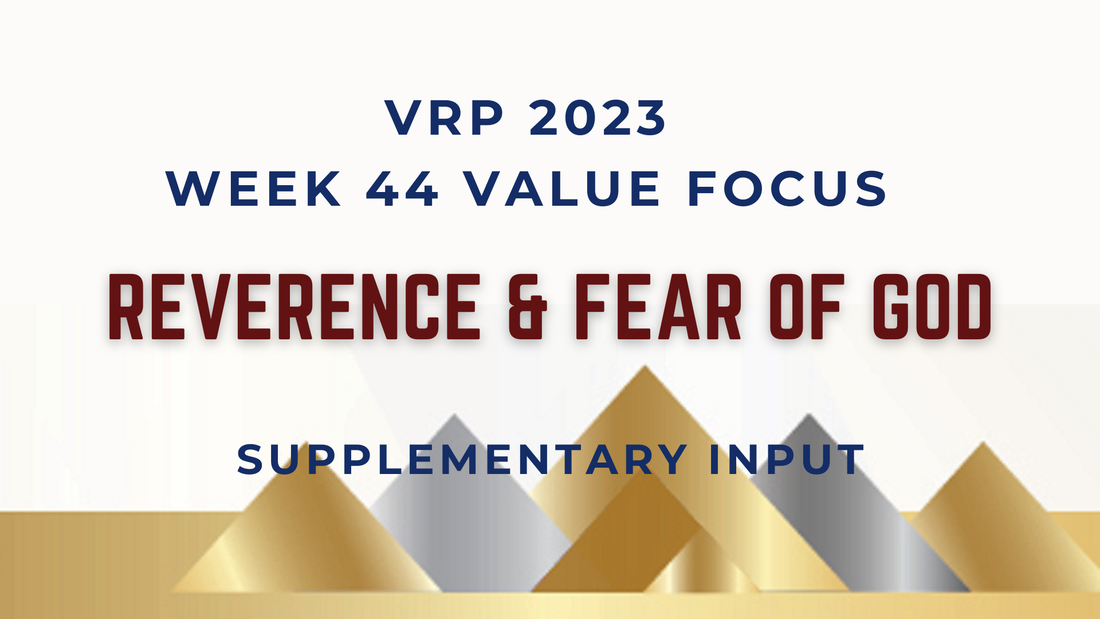 The admonition to revere and fear God sometimes leads some people to dwell on it, forgetting their freedom and joy in pursuing God’s righteousness. To fear and revere God, does it mean we have to shake and tremble before Him? While this is the case - that we tremble before His holy presence, we would like to bridge the gap between fear and freedom. Understand that reverence and fear of God doesn’t contradict the joy, peace, and freedom we find in Him.
A few people might find it contradictory that we are to fear God and be taught that we should find joy and freedom in our relationship with Him. This, of course, is not the case. Instead, we can receive joy and freedom if we revere Him. As we do so, we discover the inner depths of being free and the immense joy securely locked in our hearts as we consistently pursue righteousness. In other words, fearing God doesn’t mean that we live in fear, restricted by “thou shall nots” and the fear of consequences and punishment. If we do this, there is no freedom and joy, and it reflects God as wrathful and merciless. God’s love for us is so much that it took His Son to redeem us from sin and darkness. We have been saved and are now free from the clutches of evil. We are free to pursue God and His ways; as we do so, we live with peace and joy. To fear and revere God means walking the straight, narrow path toward the Light. We revere God because we are fearful of being without Him. It is more terrifying not to have Him in our lives. Not having God means we live in darkness - a life characterized by uncertainty, insecurity, and worry, leading to sin. Moreover, we may pursue righteousness without Him by our strength, might, and standards. This will eventually lead to despair and slavery. We are mere humans, and the world is too much to bear, especially if we go against wickedness and corruption. Self-righteousness will eventually lead us to grow weary, and we become enslaved by the rules or standards we consider right or wrong. It is a lonely battle to advocate righteousness, and the question if not because of God and His righteousness, is what or who are we doing these things for? The only way to weather these storms is by doing it with joy and freedom that can only be attained through God and his presence in our lives. Revering and fearing God will naturally come if we fully understand His nature, will, and purposes. We will naturally manifest this value because we know His love for us and is not because He is wrathful and without mercy. Revering Him means loving Him, and we regard or lift Him King over our lives. We will not resent His ways; instead, we become his advocates, and such purpose brings about joy and freedom. The reason to do what is right is for Him, and as we do so, His presence will fill and overshadow us, enabling us to do great and mighty exploits. Isn’t this great? To live with power and purpose characterized by peace, joy, and freedom. Now, let us desire to deepen our relationship with God. If the joy and freedom we describe here are unknown, let us pray to the one true God to reveal Himself. Let us pray for a God-encounter that can turn our life around and uncover the mystery in Him. We recognize that some of us may find this incomprehensible, but an excellent place to start is by establishing that there is only one God, and all power belongs to him. A sincere cry in our hearts to encounter Him will surely please Him, and one that He is more than willing to answer. This is the way to the peace, joy, and freedom we long for. It is the kind and level that we are fearful to lose, one that we will treasure and will lead us to revere and fear God truly. by: JESUS V. SISON, PTRP Deputy National Director, CRFV As humans witnessed countless evolutions of ideas, acts, and deeds, does originality and authenticity still exist to inspire change?
People nowadays, if not pressured, are inclined to keep up with the present trend in our society, specifically in social media. As an example, let us refer to the AI-generated images of a person. We cannot help but notice a growing popularity among individuals to post or share their AI-generated photos. It looks fun because they can have the hair, skin complexion, looks, and outfits they never had. However, such practices collide with who we are as a person - our originality and authenticity. Conflict within oneself arises when one tries to stand out and subvert the expectations that the world has formed about who they are. Not everybody seems capable of handling the risk of rejection if they cannot meet the people's perceptions, public opinion, and society's suppositions. So, they surrender to adapt to what is popular, imperiling the worthiness of who they are, how they are built, and why they exist. Who we are, how we were built, and the purpose of why we exist define our originality and authenticity. Cambridge Dictionary defines originality as the quality of being special and interesting and different from anything or anyone else. It sounds daunting. Sometimes, we think of a witty comment or inspiring quote as somewhat unique, only to realize that someone has said it before and somewhere. We have executed an activity or an action only to hear that somebody had done it before. Does that mean we have nothing meaningful or sensible to say or distinctively do that could be considered original? This entails returning to who, what, and why we are. Even if something has been said and done before, as humans, we progressively build on the ideas and concepts that came before us. We develop innovative, creative, and exceptional acts, answers, and viewpoints through that. So yes, sharing our thoughts on things is valuable, even if somebody else has said and done that already. We take, for example, the recently concluded Annual VRO Capacity Building held in Cebu last October 10-13, 2023. We've been doing this event for nine years and listened to countless testimonies and sharing of the different agencies' best practices as they implement the Values Restoration Program. Were those things heard before? Were those programs, projects, and activities done previously? People might answer yes, but listening intently close to every word and observing the details, those practices were innovative and progressively built to bring forth excellent and impactful results. Every action's authenticity and truthfulness were captivating; one would have thought we had never heard such things before. Everything was unique, engaging, and different from the other values programs and advocacies. We can't help but shed tears as every report brought inspiration, encouragement, and reinvigorated passion for the nation's transformation. The originality of such ideas gave the participants a more profound sense of purpose and instilled in every heart that there is a bigger vision for everyone to attain. Reports of innovativeness and uniqueness created an environment where dreams for the agency and nation live and become alive again. It mustered self-re-discovery of inner strength and who they are, thus making them thrive from within. Lastly, it established a culture where people view the benefit of investing in enormous ideas that contribute to something much more daring, inspiring, and bolder than the day-to-day up-and-down routines of implementing VRP. Despite technological advancements, AI-generated ideas and the evolution of principles, originality, and authenticity still exist to inspire change toward national transformation. |
CRFV Winning TeamA company of men and women who have committed their lives to the cause of national transformation. Archives
April 2024
Categories
All
|
Our Services |
Our Organization |
SupportSupport Page
FAQ Terms of Use |
Copyright © 2015 | Baguio City, Philippines 2000 | 074-424-1497 | crfv.cpu@gmail.com

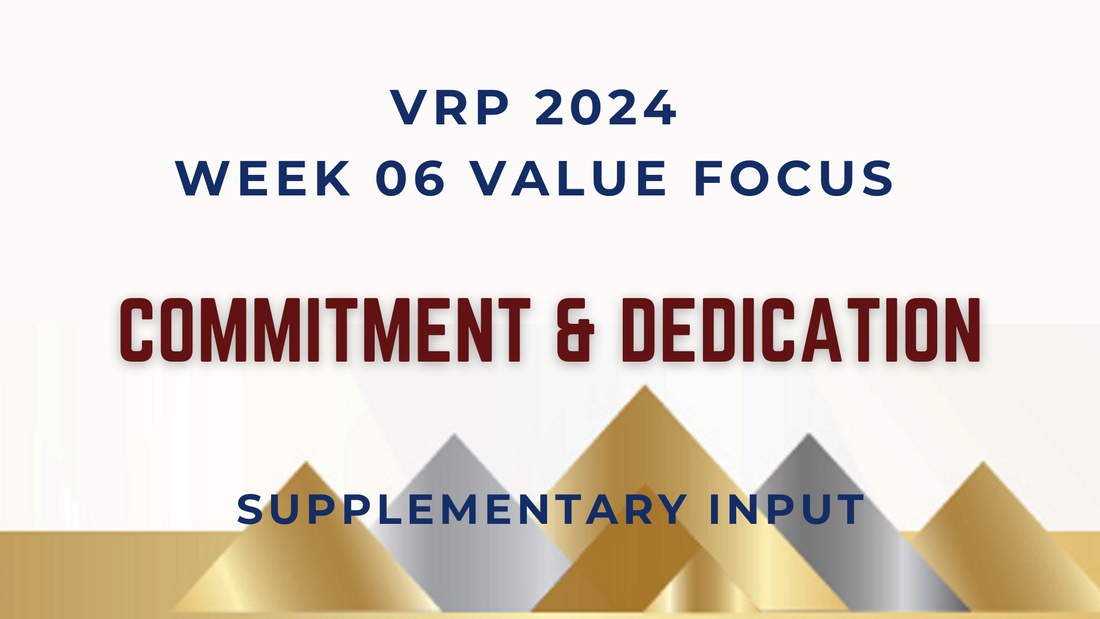
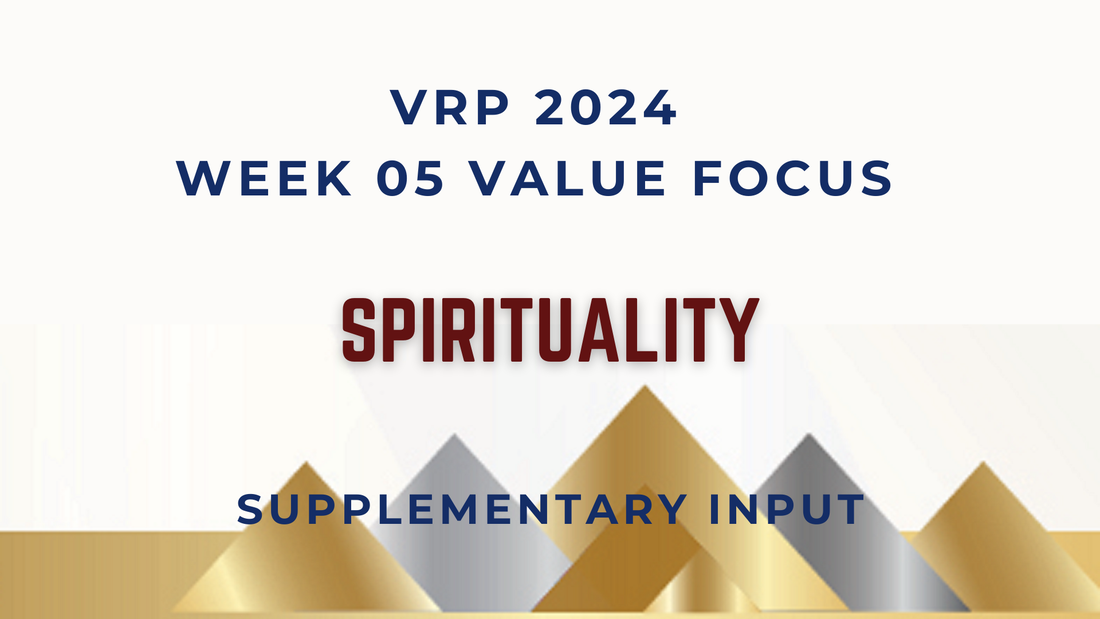
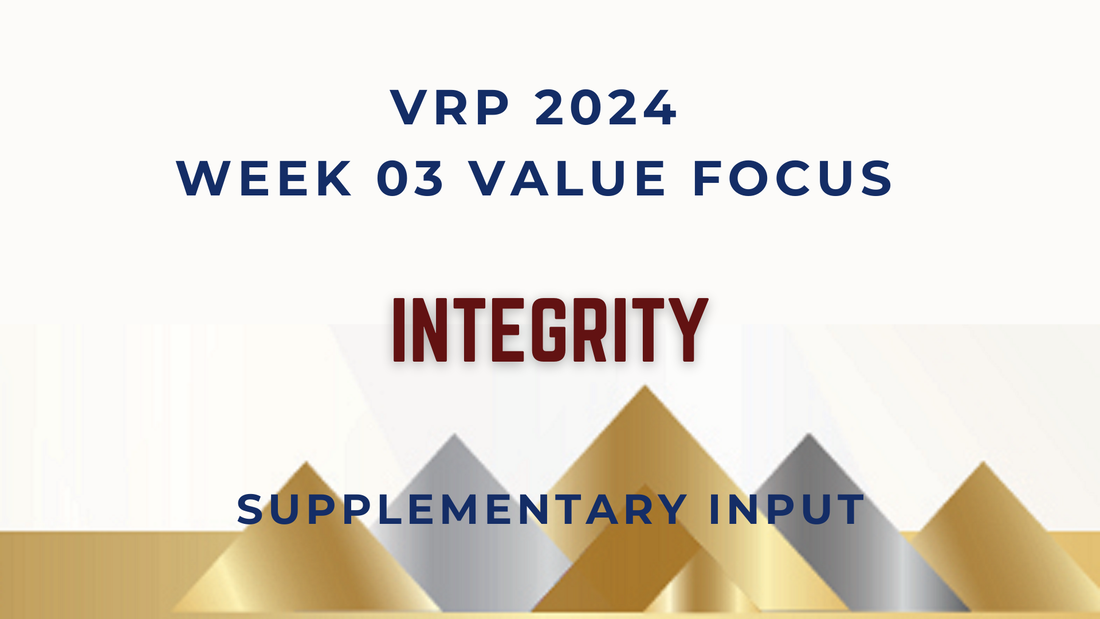
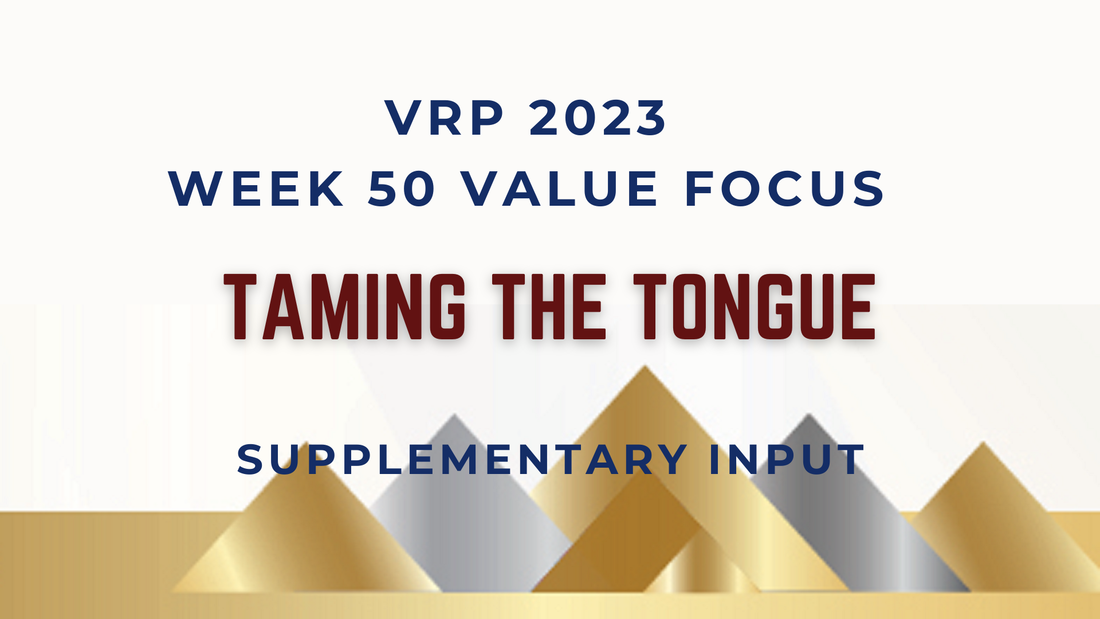
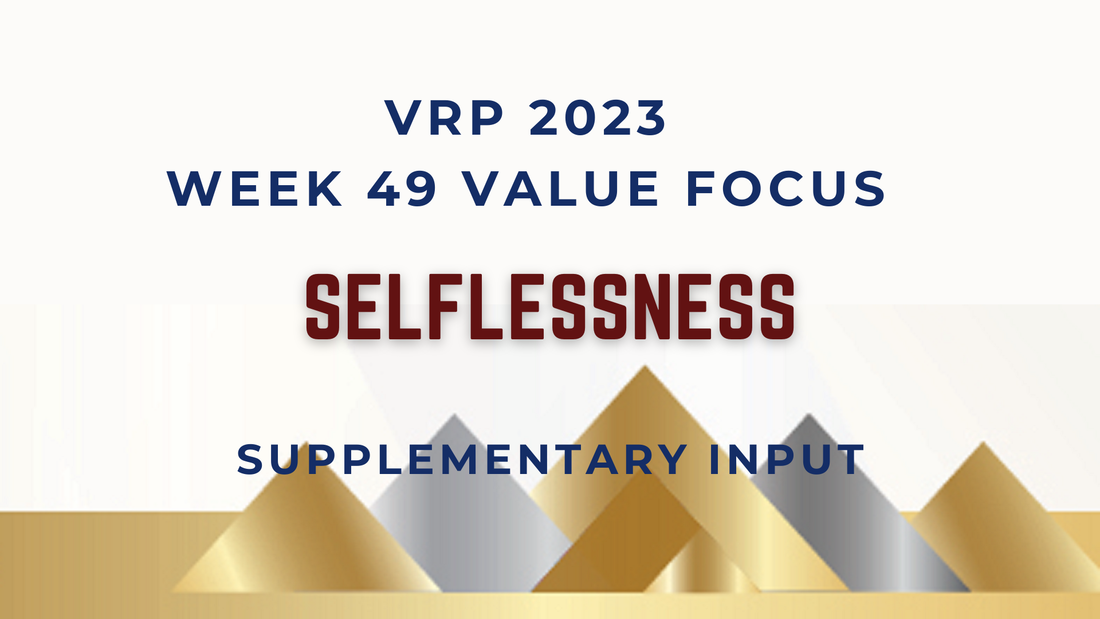
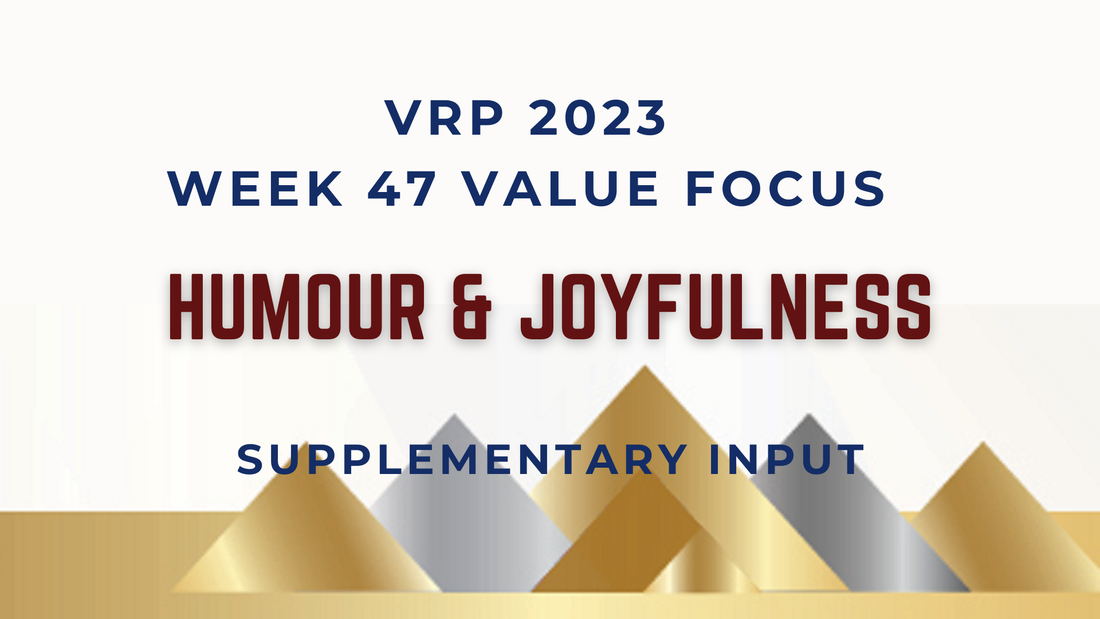
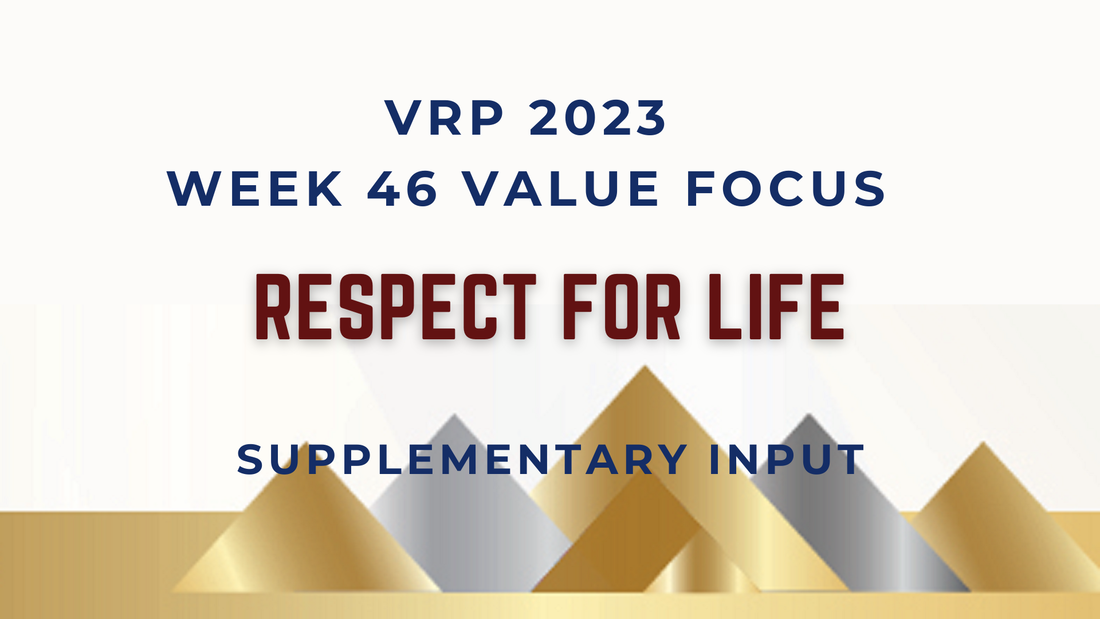
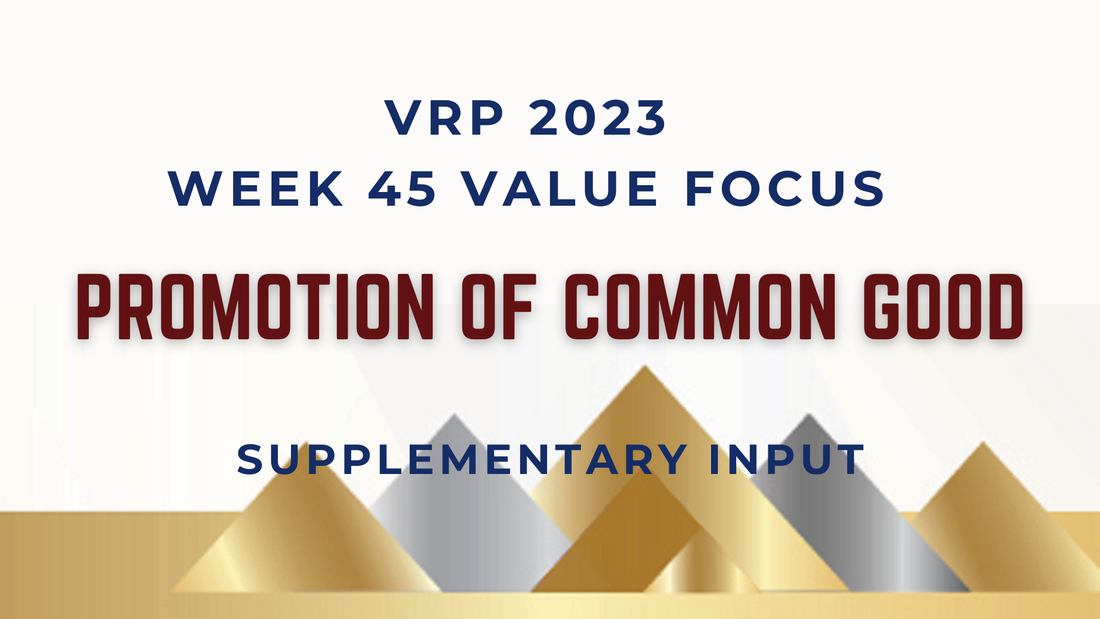
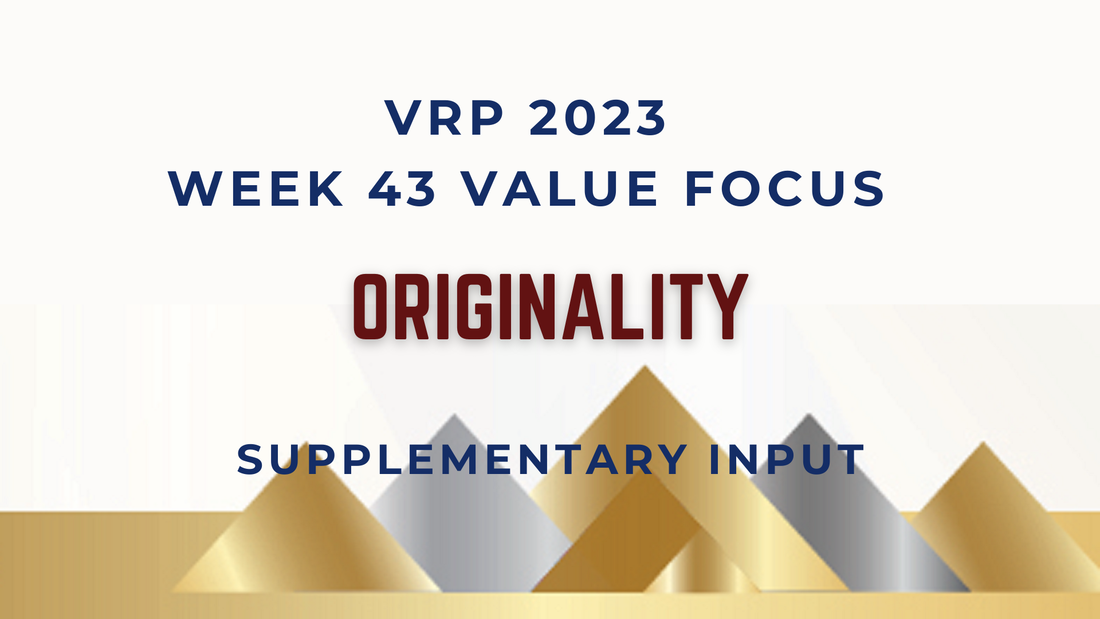
 RSS Feed
RSS Feed
